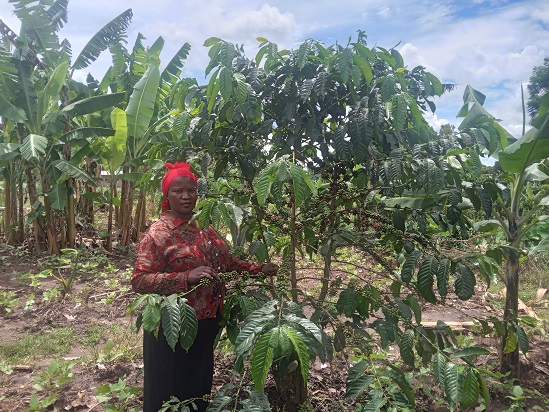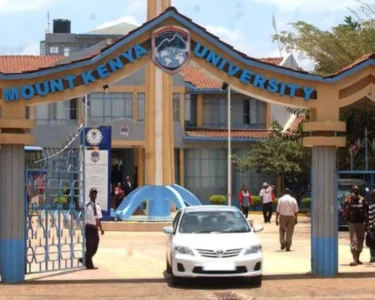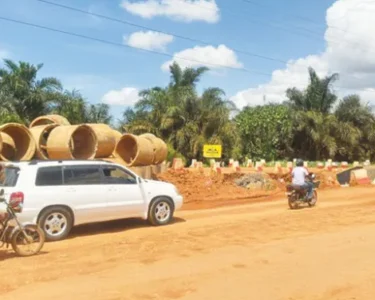Salimah Nassali’s journey from the bustling media houses of Kampala to the quiet farmlands of Mityana is one of resilience, reinvention, and rediscovery. Once a familiar voice on 88.8 CBS FM and a lively presence on WBS TV, she is now better known in her village as a model farmer whose gardens, livestock, and orchards inspire her neighbors.
Born, raised, and educated in Kampala, Nassali never imagined life beyond the city’s conveniences. Her professional career blossomed in the early 2000s, first at CBS radio where she hosted Mutakisa between 10 a.m. and 12 noon, and later on WBS TV where she ran the Sunday night cultural programme Ekyogero. She spent nearly a decade at CBS before resigning in 2012 to prepare for what would become a surprising new chapter in her life: farming.
“At that time, settling in the village was the last thing on my mind,” she recalls. “I couldn’t picture myself digging or depending on farming for survival.”
Her late husband, an official in the Buganda Kingdom, owned farmland in Kakindu Sub-county, Mityana District. He often urged her to consider developing it, but she dismissed the idea at first. A year later, after deep reflection and discussions with friends, she quietly relocated to the countryside without even telling him.
The transition was not easy. “When I first came here, life was tough. There was no electricity, not even solar. I had never held a hoe. I had even carried two boxes of gloves because I didn’t want to touch the soil,” she says with a laugh. But with time, encouragement from neighbors, and sheer determination, Nassali embraced the challenges. She installed solar power, attended farming workshops, and gradually learned to cultivate the land.
By 2013, she had planted 150 banana suckers with the help of her husband. On the same farm, she discovered 50 old coffee trees which she revived through stumping, eventually yielding about 300 kilograms of Fair Average Quality (FAQ) coffee annually. In recent years, she has added 120 improved KR coffee seedlings to expand her plantation.
Nassali’s philosophy is built on the idea that “small is big.” Rather than investing everything into one risky project, she runs multiple income-generating ventures. Alongside coffee and bananas, she keeps Kuroiler chickens, rears goats, grows maize, beans, passion fruits, and mangoes. Each project contributes to her household income and ensures steady cash flow. “I never run into debts because my projects sustain themselves. Whenever I sell produce, I first pay myself. That discipline keeps me going,” she explains.
Her farming methods are largely organic, but she supplements with BlackOff Liquid Organic Fertilizer, a locally developed product registered by the Ministry of Agriculture. She credits it for controlling pests such as the coffee twig borer and for improving yields across her gardens. “When you compare my lusuku (banana garden) with others nearby, the difference is clear,” she says proudly.
Through farming, Nassali has not only secured food for her family but also built side businesses. Proceeds from coffee, bananas, and mangoes have enabled her to buy tents and 100 plastic chairs which she hires out for community events, creating yet another income stream. She also pays her children’s school fees without financial strain.
Still, she admits farming comes with challenges. Weeds are a constant headache, especially since she avoids chemical herbicides which harden the soil. Reliable labor is also scarce in her area, forcing her to remain hands-on in every project. Yet, she sees this as an opportunity to stay connected to her work. “I’m practically involved in everything. I don’t just sit back. Regular inspection is very important for any farmer.”
Her advice to urban employees is to explore alternative sources of income, no matter how small. “If you have even one acre, you can do wonders with it. Don’t wait for big investments. Break it down into small projects and give each one attention. That’s where sustainability comes from,” she advises.
Today, at 43, Nassali exudes both confidence and peace. She has redefined her life far away from the limelight of media, proving that dignity and success can also be found in the soil. “When people see me, they’re surprised. They can’t tell I live in the village. Farming has given me a good life and true peace of mind.”






